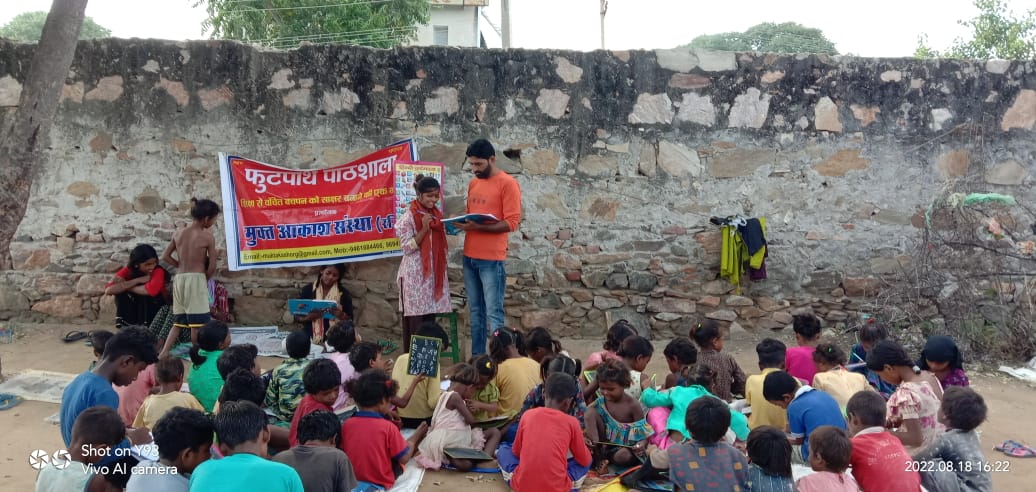Deep Mukherjee, TwoCircles.net
Jaipur: Sitting amidst a loose cluster of children, 10-year-old Rajesh (name changed) flashes a grin as he looks at the blackboard and successfully identifies the names of animals written in English.
A year back, he was unable to do so and would spend his days picking up waste and recycling it to earn Rs 40-50 at the end of each day. The son of Dalit migrant labourers from Bihar who are staying in Rajasthan, he now dreams of becoming a police officer.
“I want to go to school and become a police officer someday. Ever since I learned English alphabets, I love to know about animal names. I really like studying and don’t want to go back to picking up waste,” says Rajesh, whose parents belong to Patna in Bihar and have been working as labourers in Rajasthan for more than a decade.
Rajesh is among the 80 children studying in ‘Footpath Pathshala’, a school in Rajasthan’s Nim Ka Thana district for primarily children of migrant labourers belonging to marginalised communities.
“Back in 2022, I returned to my home in Nim Ka Thana after working in the social sector for a few years. I noticed that a large number of children, particularly those whose parents are migrant labourers, were engaged in picking up waste and recycling it. Many of the children as young as seven-eight years were also prone to addiction and never went to school. It was at this juncture that I felt the need to start the ‘Footpath Pathshala’,” Lalit Yadav, who has founded the school and runs it through the NGO Mukta Aakash Sanstha, told TwoCircles.net.
After several months of convincing the parents of the children, the first class that Yadav taught had 10 students and were held under a tree.

“The biggest problem was to convince parents, who felt that if their children attend the classes, they will lose on the income they were getting from recycling rags. I felt that the children, most of whom are Dalits and are extremely poor, would never get a chance at a better life if they do not become literate. In these two years, we have managed to enrol some of the students to government schools after we imparted them basic education. Children, who earlier could not even read, can now speak in English. We have also hired two teachers,” he says.
At present, the Footpath Pathshala functions from a place rented by Yadav. The rent is paid by local donors who have come forward to support the children.
For students such as Atul (name changed), the son of a factory worker from Bihar, the Footpath Pathshala is a gateway to a new world, wherein they have hope to return to the mainstream. The boy, who earlier picked rags in the searing heat of Rajasthan, now hopes to be a teacher.
“The children who come to the Footpath Pathshala are from extremely marginalised and vulnerable communities. Their parents, who are migrant labourers, cannot afford formal education. Along with basic education such as English, Hindi and mathematics, we also teach them about the Indian Constitution, equal rights and the importance of education. Since large scale mining takes place near Nim Ka Thana, which often results in adverse health conditions among labourers, it is even more important for initiatives such as Footpath Pathshala to grow and involve families of more migrant labourers,” says local activist Kailash Mina, who also occasionally comes to teach at the school.


